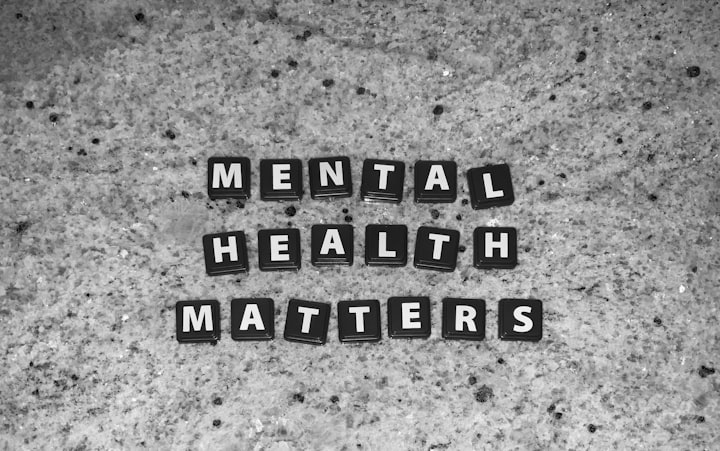How to Choose a Couples Therapist
7 Tips to Help Your Search

Choosing a couples therapist is an important decision that can significantly impact the effectiveness of your therapy sessions and the overall success of your relationship. Here are some key factors to consider when selecting a couples therapist:
- Credentials and qualifications: Look for a therapist who is licensed and trained in couples therapy or marriage counseling. They should have relevant credentials such as a master's or doctoral degree in psychology, counseling, or a related field. Additionally, consider their experience working specifically with couples and their expertise in relationship issues.
- Approach and specialization: Different therapists may have varying approaches and specializations within couples therapy. Some may focus on communication skills, while others may emphasize attachment theory or behavioral techniques. Consider your unique needs as a couple and look for a therapist whose approach aligns with your goals and values.
- Compatibility: It's important to feel comfortable and at ease with your couples therapist. The therapeutic relationship relies on trust and open communication, so it's crucial to find someone you and your partner both feel comfortable working with. Some therapists offer initial consultations or phone calls to help you assess this compatibility.
- Referrals and recommendations: Seek recommendations from trusted sources such as friends, family, or healthcare professionals who have had positive experiences with couples therapy. Online reviews and directories can also provide insights into therapists' reputations and client feedback.
- Cost and logistics: Consider practical aspects such as the therapist's location, availability, and fees. Determine if they accept your insurance or offer sliding scale fees based on income. Additionally, check if the therapist's office hours align with your schedules and if they offer online or remote sessions if needed.
- Treatment goals and duration: Discuss your treatment goals with potential therapists and inquire about their estimated treatment duration. Couples therapy can vary in length depending on the specific issues being addressed. Understanding the therapist's approach to treatment and their expectations can help you make an informed decision.
- Personal fit and cultural sensitivity: Consider the therapist's openness and ability to address issues related to your cultural background, values, and beliefs. A therapist who demonstrates cultural sensitivity and understands the unique dynamics of your relationship can provide more effective support.
Remember that finding the right couples therapist may involve some trial and error. Don't hesitate to switch therapists if you feel that the current one is not meeting your needs or if you believe a different approach would be more beneficial for your relationship.
Benefits of Couples Therapy
Couples therapy, also known as marriage counseling or couples counseling, offers numerous benefits for couples who are experiencing challenges or seeking to improve their relationship. Here are some key benefits of couples therapy:
- Improved communication: Couples therapy provides a safe and neutral space for partners to express their thoughts, emotions, and concerns. A skilled therapist can help improve communication patterns and teach effective communication techniques, such as active listening and expressing needs and desires clearly. Enhanced communication skills can foster greater understanding, empathy, and connection between partners.
- Resolving conflicts: Conflicts are inevitable in any relationship, but couples therapy can help couples navigate and resolve conflicts in a healthier and more productive manner. Therapists can assist in identifying the underlying causes of conflicts, exploring each partner's perspective, and teaching conflict resolution strategies. This can lead to more constructive and mutually satisfying resolutions.
- Strengthening emotional connection: Couples therapy focuses on enhancing the emotional connection between partners. Therapists help couples explore and understand the dynamics of their relationship, including attachment styles, emotional needs, and intimacy issues. Through therapy, couples can rebuild trust, deepen their emotional bond, and foster a greater sense of closeness and intimacy.
- Building problem-solving skills: Couples therapy equips couples with effective problem-solving skills to address challenges and make decisions together. Therapists can teach techniques to identify and prioritize issues, brainstorm solutions, and reach compromises that satisfy both partners. Developing these skills can empower couples to tackle future difficulties and make more informed choices.
- Resolving past hurts and traumas: Couples therapy can be beneficial for addressing past hurts, traumas, or unresolved issues that are affecting the relationship. A skilled therapist can guide couples through the process of healing emotional wounds, providing support and facilitating forgiveness and reconciliation. Resolving past baggage can free up emotional energy and create a healthier foundation for the future.
- Strengthening commitment and trust: Couples therapy can help partners reconnect with their commitment to the relationship and rebuild trust if it has been compromised. Therapists assist couples in identifying the factors that may have eroded trust and provide guidance on rebuilding it through open communication, transparency, and consistent actions.
- Preparing for major life transitions: Couples therapy can be beneficial when couples are facing significant life transitions such as marriage, starting a family, blending families, or retirement. Therapists can help couples navigate these transitions, manage stress, and adapt to new roles and responsibilities, promoting a smoother and more fulfilling transition.
It's important to note that the effectiveness of couples therapy depends on the willingness and active participation of both partners.
It can provide couples with the tools, insights, and support needed to strengthen their relationship, but it requires commitment and effort from both individuals.
Why You Shouldn't Delay Going to Couples Therapy
Delaying going to couples therapy when issues arise in a relationship can have negative consequences. Here are some reasons why you shouldn't put off seeking couples therapy:
- Issues can escalate: Relationship problems tend to worsen when left unaddressed. What may start as minor conflicts or communication difficulties can escalate into more significant issues over time. By seeking therapy early on, you can prevent problems from escalating and potentially avoid more severe damage to the relationship.
- Emotional distance can grow: When couples experience challenges, they may begin to withdraw emotionally or build walls to protect themselves. This emotional distance can strain the connection between partners and make it more challenging to rebuild trust and intimacy later on. Seeking therapy promptly can help address emotional distance and promote a healthier and more connected relationship.
- Negative patterns can become ingrained: Unresolved issues can lead to the development of negative patterns and dynamics within the relationship. For example, frequent arguments, avoidance, or a breakdown in communication can become deeply ingrained habits. Couples therapy can help identify and interrupt these patterns, allowing couples to develop healthier ways of relating to each other.
- Resentment and bitterness can accumulate: Over time, unresolved conflicts and unaddressed issues can lead to feelings of resentment, bitterness, and emotional pain. These emotions can erode the foundation of the relationship and create barriers to effective communication and problem-solving. Couples therapy provides a space to work through these emotions, heal past wounds, and rebuild trust.
- It's easier to work on issues early on: Like any problem, addressing relationship issues early on tends to be easier than dealing with deeply entrenched issues. Couples therapy can provide tools, techniques, and insights to help address challenges more effectively, as well as prevent them from becoming deeply rooted and more difficult to resolve.
- Prevention is better than cure: Couples therapy is not solely reserved for relationships in crisis. It can also be a proactive and preventive measure to strengthen a healthy relationship. By addressing minor issues and learning effective communication and problem-solving skills, couples can build a stronger foundation and prevent potential future conflicts.
- Improved overall well-being: A fulfilling and harmonious relationship can have a positive impact on overall well-being. Couples therapy can help improve relationship satisfaction, reduce stress, and enhance emotional and mental health for both individuals. Promptly seeking therapy can lead to a healthier and happier relationship, benefiting both partners individually and as a couple.
Remember, seeking couples therapy does not imply that a relationship is failing. It is a courageous step towards growth, understanding, and creating positive change in the relationship.
A skilled therapist like Jennifer Krause at Peaceful Mind Counseling can provide guidance and support to help couples navigate challenges, foster healthier communication, and strengthen their bond.





Comments
There are no comments for this story
Be the first to respond and start the conversation.